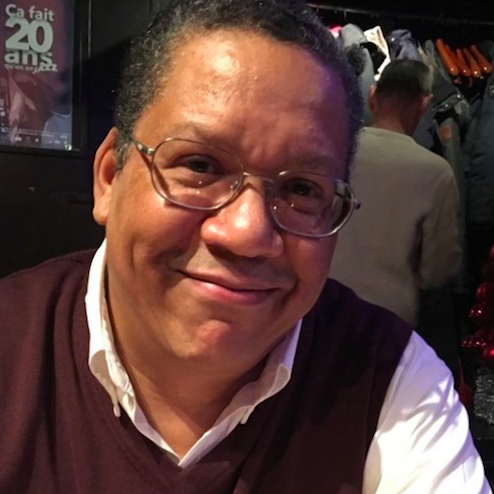
Social entrepreneurs play a vital role in developing innovative approaches to address pressing social issues. Public policy designed to further this work can help push progress forward faster, experts say.
“Policy can hold social innovation back if we just keep funding the same programs over and over again without asking whether the programs are actually effective, and are they actually achieving the desired results for those who need them most,” said Deborah Smolover, managing partner of New Profit and executive director of America Forward.
America Forward, a nonpartisan initiative of the venture philanthropy fund New Profit, works to help social entrepreneurs and policymakers find common ground and shape legislation that encourages the creation of effective and equitable solutions.
Government funding “enormously outweighs and exceeds” private funding for social and human services, so how the government allocates that funding is critically important, Smolover said.
Further, policy can hinder social innovation if it’s focused on outputs rather than outcomes. For example, if a workforce development or economic mobility program measures the number of graduates but doesn’t measure outcomes — such as whether those graduates land good-paying jobs that enable them to improve their living conditions — it becomes difficult to measure the program’s effectiveness and the impact of the government funding.
“We believe that these leaders who are closest to communities and who are closest to the problems have deep expertise, and utilizing that expertise to craft programs and policy solutions can vastly improve public policy,” Smolover said. “Put simply, they know what works, and the power of this expertise is greatest when social innovators collaborate with one another in communities to create policy solutions together.”
America Forward’s creation is rooted in comments by former White House advisor David Gergen, who served in the administrations of presidents from both major parties. Gergen said the potential impact of social entrepreneurs was deterred because the people who were “deeply invested” in effecting social change were overlooking the policies and systems in which their work happened.
“Essentially, by not engaging with government, social entrepreneurs were missing an enormous opportunity for impact, and this really resonated with our social innovation community,” Smolover said. “What I think we’re seeing now is more and more social innovation, and organizations are really interested in policy and advocacy work.”
Since its inception about 15 years ago, America Forward grew into a coalition of more than 120 social innovation organizations reaching 9 million people in more than 15,000 communities nationwide. To date, the America Forward network has leveraged nearly $2 billion and directed millions of federal resources toward programs that are achieving measurable results for those who need them most.
In recent years, nonprofit organizations have slowed their lobbying of policymakers, Smolover said. That's not because lobbying is viewed as less important, but because many nonprofits lack the necessary resources and access to advocacy, training, support and tools.
“That is why we believe our work at the America Forward Coalition is so vitally important and so valued among our social entrepreneurs because, by advocating together, they’re both more powerful and more efficient,” Smolover said. “We have tried to meet that need by offering more trainings through our America Forward Advocacy Institute, which is basically designed to help social entrepreneurs become better, bolder advocates.”
The institute saw a record number of requests for training in this past year, she said. The exceedingly polarized political landscape in the U.S. highlights the urgency of finding common ground to address social problems.
“We are a non-partisan initiative seeking bipartisan policy solutions with a team that is very diverse along many dimensions, including prior experience working on both sides of the aisle,” Smolover said. “We know that to get policy passed, we need to be able to cultivate a diverse group of champions across many different ideologies and political points of view. We’ve been able to do that time and time again in every administration, in every Congress, with varying makeups.”
America Forward’s successes include spearheading the creation of the Social Impact Partnerships to Pay for Results Act, a $100 million pay-for-success demonstration fund administered by the Department of the Treasury. It invests in innovative state and local partnerships that compensate providers on the basis of measurable improvements in people’s lives, from expanding workers’ earnings to reducing child abuse and neglect.
The coalition was also instrumental in the creation of the Social Innovation Fund, which invested more than $400 million in locally driven, evidence-based innovations in partnership with intermediaries across the nation.
Now, America Forward is working with representatives on both sides of the aisle to generate support for key provisions of those bills, the Workforce Development Innovation Fund, and the RESET for America’s Future Act, in larger reauthorizations that are moving forward.
“It’s not that every mentoring organization or economic mobility organization has the same viewpoint or has the same proposed solution,” Smolover said. “We’ve become very adept at working with different viewpoints within our coalition. And then, working to find not the least common denominator, but those sets of common principles that all of our organizations can agree on, and come up with a narrative that we feel can reach leaders of varying political ideologies.”
Image credit: Ian Hutchinson/Unsplash

Gary E. Frank is a writer with more than 30 years of experience encompassing journalism, marketing, media relations, speech writing, university communications and corporate communications.














